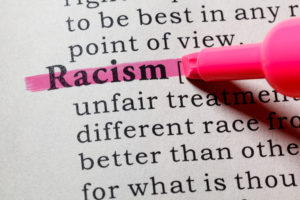
This should probably go without saying, but here we are…
You’ll likely remember the 2020 incident when Amy Cooper, a white woman in Central Park, called 911 on a black birdwatcher after he asked her to leash her dog. The interaction was filmed, during which the woman erroneously claimed there was an “African-American man threatening my life.”
The video quickly spread on social media, and the next day Cooper was fired by her employer.
As investment firm Franklin Templeton explained in a social media post, “Following our internal review of the incident in Central Park yesterday, we have made the decision to terminate the employee involved, effective immediately. We do not tolerate racism.”
Amy Cooper turned around and sued her previous employer, accusing them of firing her because of her race and sex. She also claimed the company’s statement on social media was defamatory. U.S. District Judge Ronnie Abrams dismissed each of Cooper’s complaints:
Race – Cooper claimed that Franklin Templeton had implicated her race in their public communications and had terminated Cooper because of her race. “This argument merits little attention,” retorted Judge Abrams. “’Racism’ is not a race, and discrimination on the basis of alleged racism is not the same as discrimination on the basis of race.”
Sex – Cooper claimed that Franklin Templeton’s actions were sexual discrimination because the company had fired Cooper, but had not terminated male employees following serious misconduct. However, Cooper and the male employees weren’t in similar positions within the company, explained Judge Abrams, and so Cooper could not establish that she was being unfairly treaded compared to male employees. Additionally, none of the male employees’ conduct was similar to Cooper’s, and therefore was not comparable.
Defamation – Cooper claimed that Franklin Templeton’s statement was defamatory because 1) the employer did not conduct an “internal review” and 2) it portrayed her as a racist.
- For Judge Abrams, the fact that Franklin Templeton had watched the 2020 video and had engaged in an internal discussion was sufficient evidence for the exchange to be called an “internal review.”
- “It is well-established that an accusation of bigotry is a protected statement of opinion”, Judge Abrams countered, “rather than a defamatory statement of fact capable of being proven true or false.”
StraightforWARD Legal Advice:
Not only are employers encouraged to rebuff racism, in many instances they are required to. Under Title VII, employers are liable for workplace harassment performed by supervisors, employees, independent contractors and customers. Basically, don’t wait until a video goes viral to step in.
Employers with questions about workplace harassment and employee discipline should contact Barry Brownstein at 215-647-6602 or bbrownstein@thewardlaw.com.
